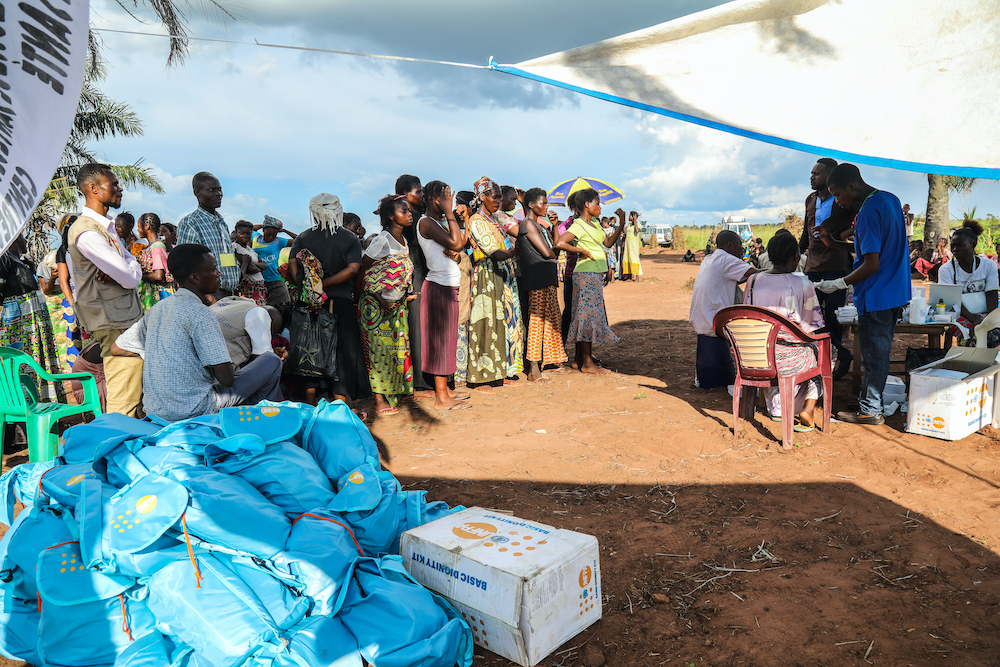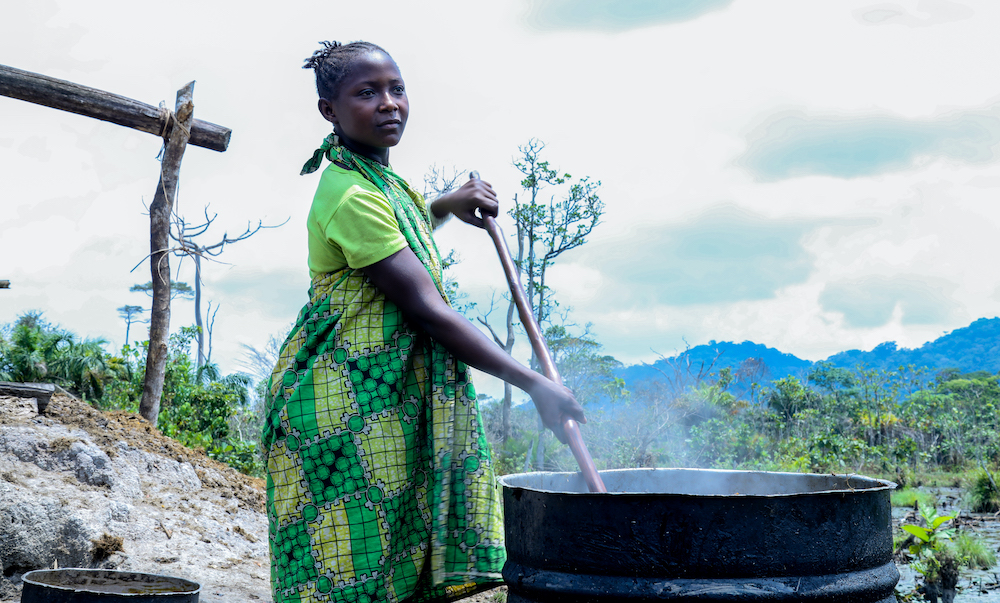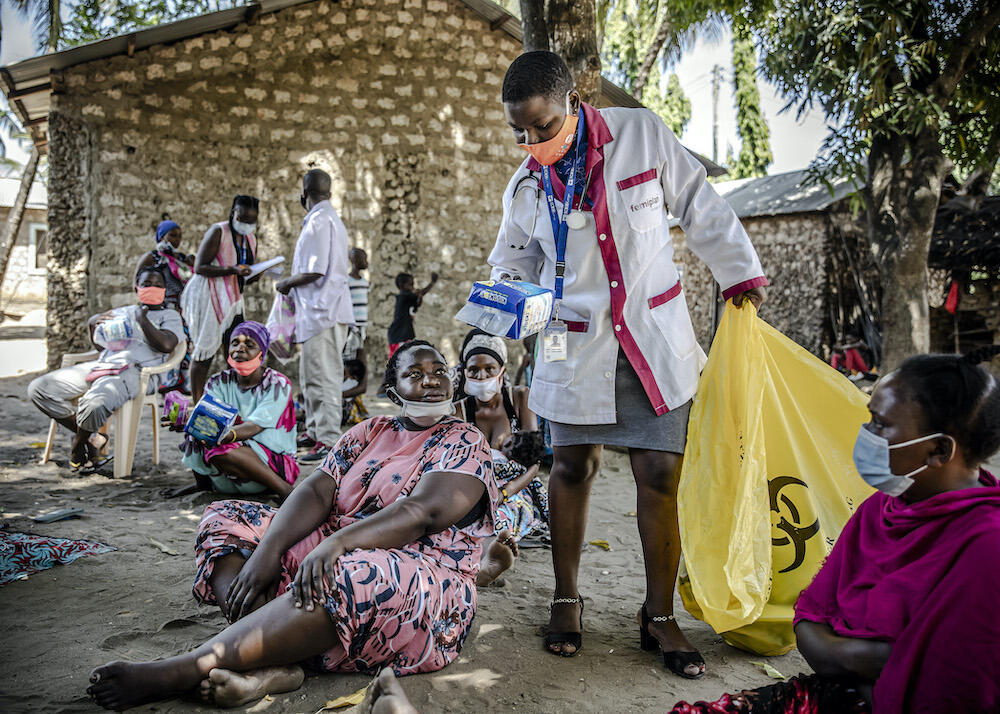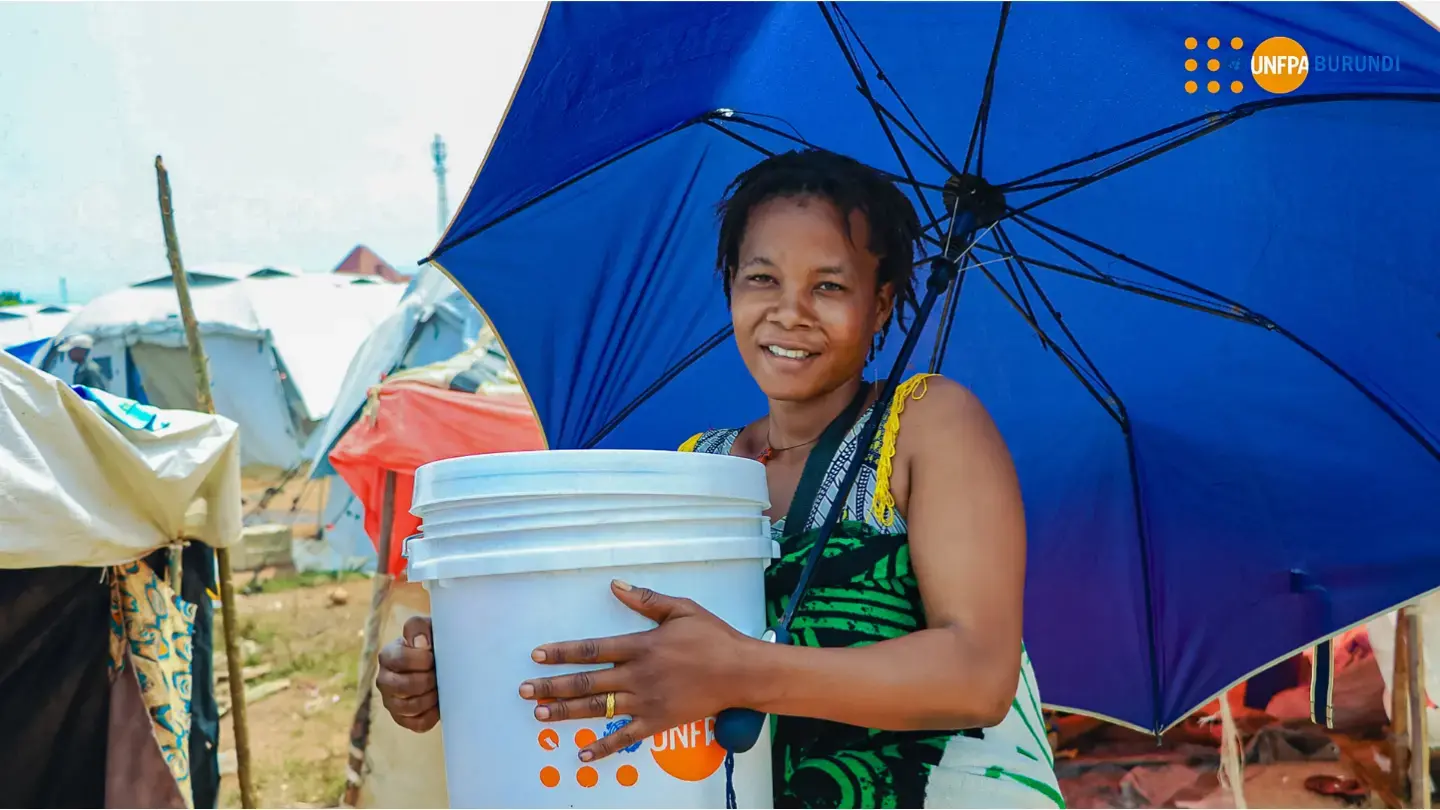JOHANNESBURG, South Africa—“Climate change is one of the most disruptive issues of our time. Not only is it a disrupter of progress towards development, but it is also a multiplier of existing health vulnerabilities and gender inequalities,” said Dr. Julitta Onabanjo, Regional Director for UNFPA East and Southern Africa.
The destruction of households and livelihoods, and the loss of livestock and crops due to severe droughts are a reality for many people in Uganda, Kenya, Malawi, Mozambique and the Sahel region. Hard hit by climate change, they also endure difficulties in dealing with its negative consequences.
Often, it is women and girls who bear the brunt of climate change.
When a climate-related disaster strikes, women and girls are exposed to vulnerabilities that put them at greater risk of gender-based violence. Young girls who are unable to attend school if they are displaced, for instance, risk being married off early by parents who can no longer afford to look after them if they have lost their livelihoods. A girl married as a child to a much older man is at greater risk of intimate partner violence due to an imbalance of power in the relationship.

During disasters, health services - including sexual and reproductive health services - are often limited and at times not available, such that women often give birth without much-needed medical support. In addition, women’s and girl's ability to manage their menstruation with dignity is impaired when there is a lack of clean water and menstrual products.
For marginalized and vulnerable groups of people, as well as those with disabilities, the impact of climate change exacerbates their already existing challenges and vulnerabilities.
Africa has a huge responsibility to its people, in particular to its women and young people, to ensure that not only is their health realized but that climate change does not hold us back.
“The opportunity to change this is now,” Dr. Onabanjo said. “We cannot afford to waste time. Africa has a huge responsibility to its people, in particular, to its women and young people to ensure that not only their health is realized but that climate change does not hold us back.” She was speaking during a session on “Climate and health: empowering women and young people to be drivers of climate solutions” at this year’s Africa Health International Conference, organized by Pathfinder International.
To ensure healthier communities and protect the wellbeing of all, including women and girls, adaptation and resilience strategies need to be an integral part of national health plans.
“The health sector must never turn a blind eye to climate change as climate change is the major determinant of health; ignoring it will simply cause more harm and damage,” said Prof. Joachim Osur, Technical Director for Amref Health Africa.
The World Health Organization states that between 2030 and 2050, climate change is expected to cause approximately 250,000 additional deaths per year, from malnutrition, malaria, diarrhoea and heat stress alone. The direct damage cost to health is estimated at between $2-4 billion per year by 2030.
Africa should position itself with one voice at COP26 and lobby for climate adaptation measures that do not alienate health services, including sexual and reproductive health.
“Africa should position itself with one voice at the upcoming Conference of the Parties (COP26) and lobby for climate adaptation measures that do not alienate health services, including sexual and reproductive health services,” said Professor Afeikhena Jerome, Special Advisor to the Commissioner for Agriculture, Rural Development, Blue Economy and Sustainable Development, African Union Commission.

National Determinant Commissions instrumental for resilient communities and health systems
In the lead up to COP26 in Scotland in November, the majority of the UN Member States will submit revised Nationally Determined Contributions (NDCs), which will drive implementation of the Paris Agreement for the next five years.
According to UNFPA’s forthcoming NDC Analytical report, based on a recent UNFPA study of 50 African countries, while almost all countries made a reference to health, just 9 mentioned sexual and reproductive health and rights or population issues. Furthermore, only 15 countries mentioned strengthening health systems and increasing access to health services in their adaptation plans and strategies.
Efforts to mitigate and adapt fall short of the scale and the urgency required to effectively address the impact of climate change on women and girls, as well as vulnerable and marginalized population groups.
“The time has come for African member states to raise their bar and use the language that is needed,” said Dr. Onabanjo. This means incorporating issues of health in their NDCs, including sexual and reproductive health and rights, gender mitigation and adaptation, to secure the resources needed and move with speed to build resilient communities.
This means upcoming NDCs should not turn a blind eye to issues of climate change and health, as climate change is the major determinant of health, and by ignoring it more harm and damage will result.
Due to climate impacts, young women and girls end up giving up their aspirations as they take on lifelong non-professional careers.
“Every government needs to understand what is ahead of us in terms of the future. Due to climate impacts, young women and girls end up giving up their aspirations as they take on lifelong non-professional careers,” said Joshua Amponsem, Executive Director for Green Africa Youth Organization.
Greener, more inclusive and just post-COVID-19 nations will need to position health, gender and climate change mitigation, adaptation and resilience together if there is to be a long-lasting impact.
The time to build forward better is now.





